«Flekk»
© Knut Egil Wang/MomentA stop to public performances during the Coronavirus outbreak gave choreographer Yaniv Cohen (42) the idea for «Flekk». A faceless creature giving work to furloughed dancers and birthday fun to children.
The Oslo based Israeli Yaniv Cohen (42) has been dancing alone at 80 birthdays since he began doing this in April. The Flekk concept – where you get a free visit from a dancer to entertain children aged four to ten on their birthday – has spread to ten Norwegian cities since the start in Oslo and held 140 performances in total.
Cohen got the idea for Flekk, the Norwegian word for «Spot», when his daughter was asked to draw a card for a friend in class as part of her homeschooling at the time when all Norwegian educational institutions were closed and the whole country under social distancing and lockdown regulations. That made him realize that the Covid-19 pandemic prevented children from celebrating their birthday.
As the dance performance he was due to premiere with this spring was postponed, and he had already finished his period of teaching at Oslo National Academy of the Arts (KHiO), Mr. Cohen suddenly found himself with time on his hands. It made him want to contribute with something that could make people happy.
With input from his eight-year-old daughter Lovi Cohen, who is a pupil at The Ballet School at The Royal Ballet in Norway, the Flekk character was born. One week later, Yaniv ordered costumes and a loudspeaker and got Lovi to film from a window while he danced in his own backyard in Old Oslo. From the moment he put the video on Facebook, bookings started flooding in. The first week alone he danced at 29 birthdays.
The big demand made him seek the cooperation of The House of Dance in Oslo, the dance company Carte Blanche in Bergen – where Yaniv himself was a crew member and danced for eight years – and DansiT in Trondheim. The project now employs furloughed dancers who got in touch. After 15 years in Norway, Yaniv Cohen has learned to combine his passion and willingness to take risks which he says he has inherited from his native Israel, «where many artists work for free and live like dogs», he says – and Norwegian red tape.
Cohen funds his own work through a state artist grant and his KHiO teaching salary, and offers his Flekk services for free. But the other dancers get paid a small fee thanks to a mix of funds from the supporting institutions and donations as most families want to pay something for the birthday visit even though they don’t have to. The project lasts until 30 June. After that, Cohen believes demand will naturally fall as lockdown measures in Norway are eased. In the longer term, Cohen wants to make a Flekk show, but before that, he has applied for support to set up an offer for kindergartens.
While his Flekk project has been embraced by the public and dancers who suddenly found themselves with no work, the labour union for dancers in Norway is more conflicted; on the one hand highly praising Mr. Cohen for his initiative during a time of deep crisis for Norwegian dancers, but at the same time being worried about the project not being able to pay standard fees.
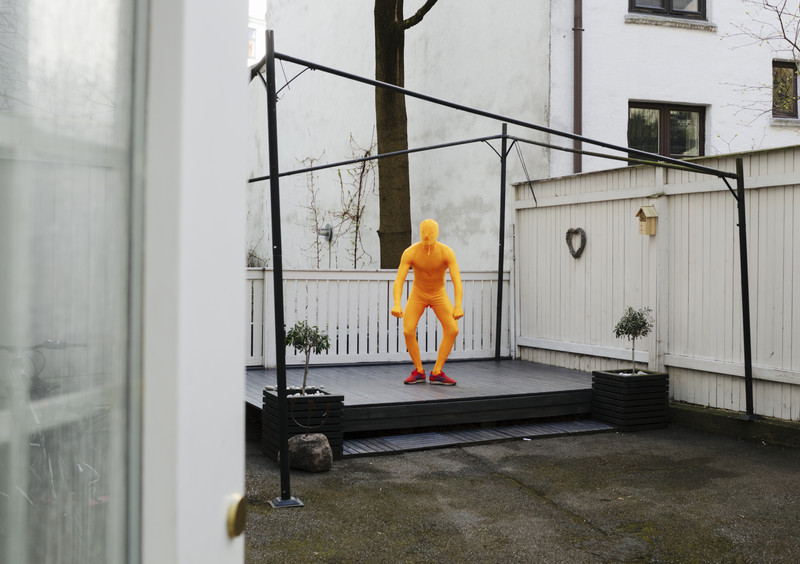

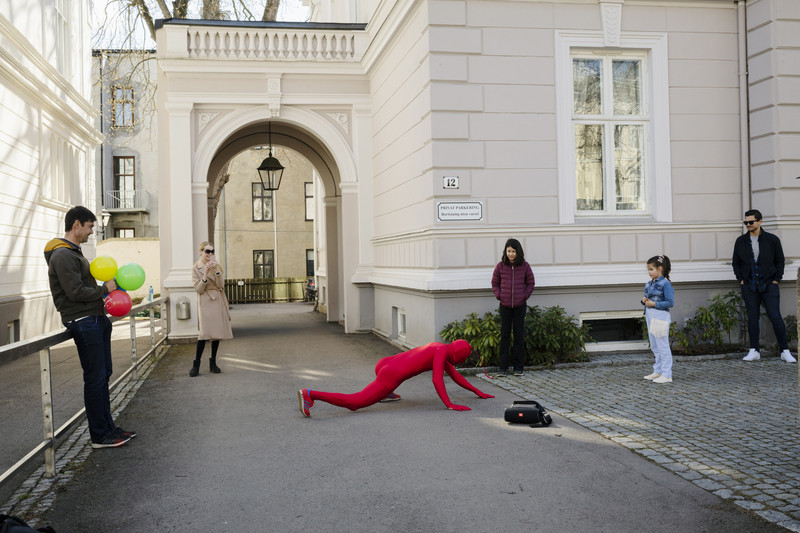
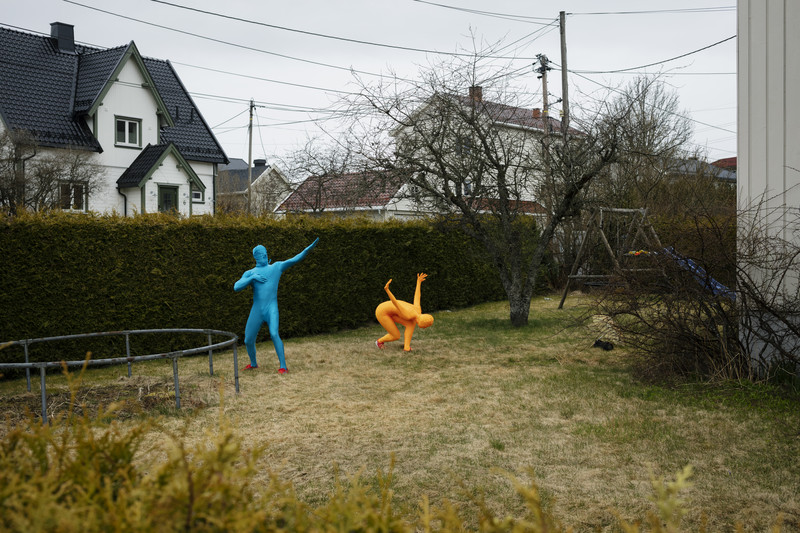
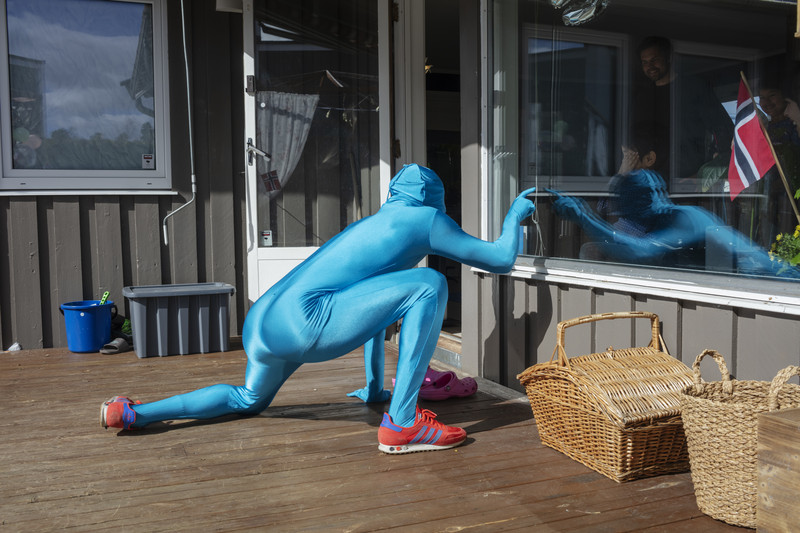
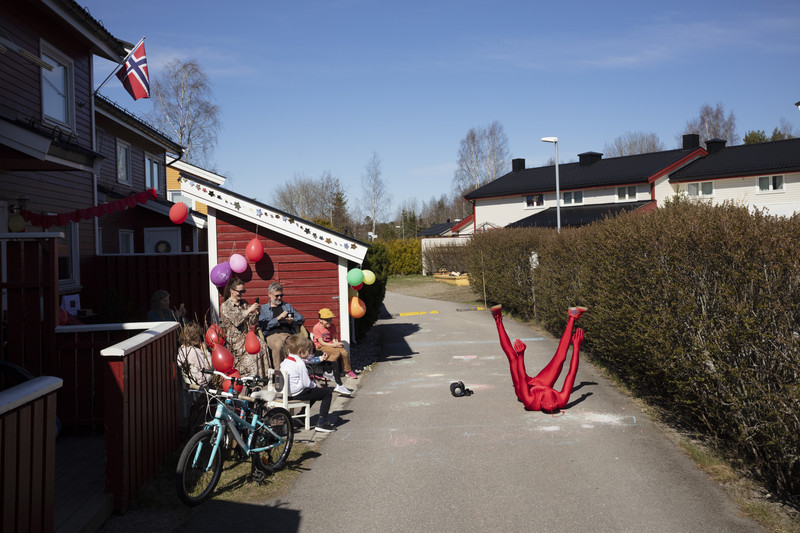
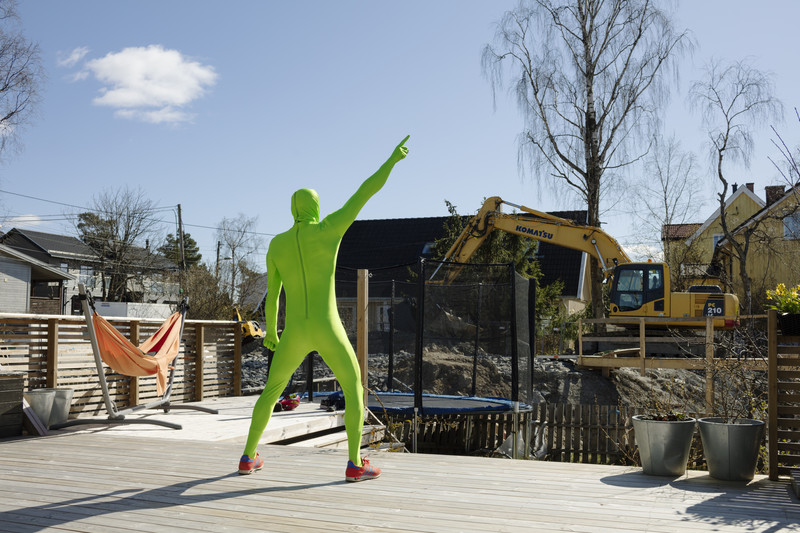
Yaniv Cohen himself feels he thrives in a crisis, perhaps because he is so used to them. He grew up in the desert city of Kiryat Gat, in South-East Israel, as the youngest of four siblings. His father owned a furniture factory, his mother was a social worker. Art was not part of everyday life before he was encouraged to start dancing during his three years-long compulsory military service.
Despite being in top shape, he did not have to serve on the frontline because his parents had already lost one son. His youngest brother was killed in the army at 19, when Yaniv was 11, while his oldest brother, a pilot died in a helicopter accident at 37, just before Yaniv turned 24. My life has been coloured by loss. Being an Israeli dancer and choreographer in Norway is a negotiation between the past, present and future. It is constant. As a Jew, I am part of a people used to persecution. It gives you a feeling of always having to deal with something. It doesn’t matter how integrated I am in Norway, a part of me will always be an outsider. As an outsider you have to negotiate with your surroundings who you are, Mr. Cohen says. He believes his reason for creating Flekk has to do with his past, the tendency to enjoy challenging situations. In the country of Norway, a well organized Scandinavian social democracy,
Mr. Cohen feels fortunate for having all kinds of opportunities, but at times get frustrated as the cultural system works very slowly. For Cohen the Corona situation, with all it’s limitations, brought him clairity. As a dancer he finds it easier to work when he has a clearly defined task, with no room for any doubt. Once a freelance dancer in the Nordics, Yaniv Cohen soon realized that Scandinavians were far more different than he would have guessed. He found the Danes to be open an inclusive, well organized and free with their bodies, while Iceland felt chaotic to him.
Iceland was just like Israel mentally, the attitude being one of everything will work out. Which it does. In the end, concludes Mr. Cohen while laughing wholeheartedly. And then he found himself in Norway, the most well-organized place he has ever been.
Norwegians are far more reserved, both in body and the way they express themselves. By living in Norway I can balance in the middle. Mr. Cohen’s best advice during a time people are losing their jobs? Invest in something you enjoy. It can be tough, and I can’t guarantee it will make your life easier. But by insisting to do something you enjoy, you make life richer.
Text by Silje Kathrine Sviggum | Images by © Knut Egil Wang
click to view the complete set of images in the archive
